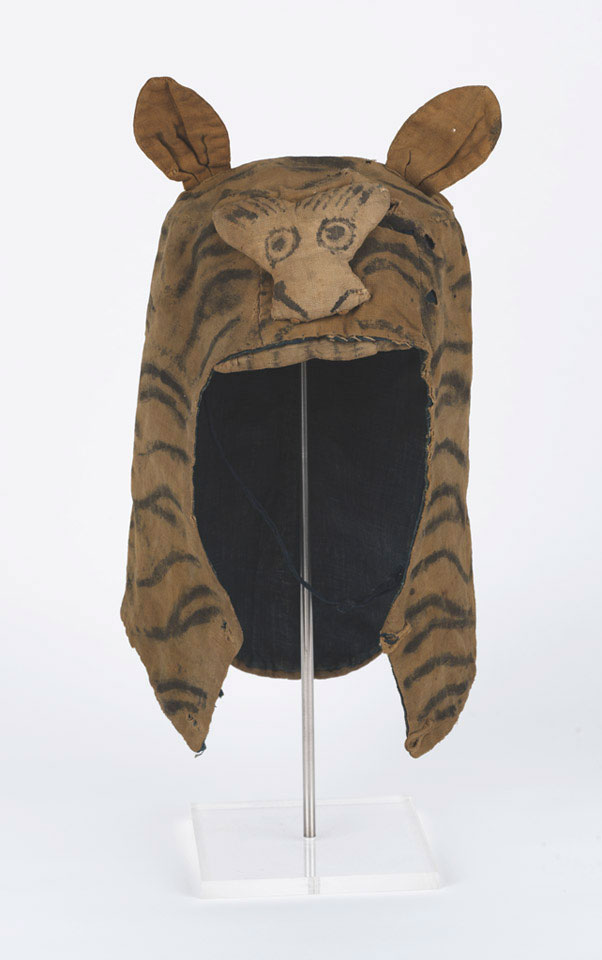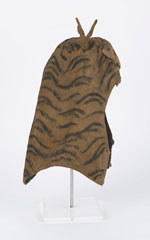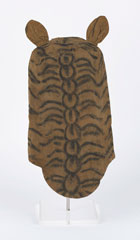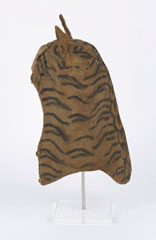
Online Collection
« Prev - 1 of 1 results - Next »
Tiger headdress, Chinese Manchu forces, Boxer Rebellion, 1900-1901
Textile cap in the form of a tiger's head.
The 'Tigermen' formed irregular units of the Chinese imperial army in the 18th and 19th centuries and were used primarily as skirmishers. They are believed to have worn tiger caps and striped tunics and trousers, in part, to cause panic amongst the horses of enemy cavalry units. Tigermen are depicted in representations of Chinese forces in the 2nd China War (1856-1860) and the 3rd China War (1900-1901).
This tiger cap is believed to date from the 3rd China War, also known as the Boxer Rebellion. It was acquired by Captain (later Colonel) Francis Garden Poole, East Yorkshire Regiment.
Francis Garden Poole (1870-1950) was born at St Paul's Cray in Kent on 24 June, 1870. He was educated at Cambridge and after attending the Royal Military College he was gazetted as a 2nd lieutenant to the East Yorkshire Regiment in 1892. Poole served in Africa in the 1890s, rising to the rank of captain.
In 1900 the foreign legations in Peking (Beijing) were besieged by Chinese nationalist rebels of the Society of Righteous and Harmonious Fists (or 'Boxers' as the Europeans came to call them), aided and abetted by Chinese Imperialist forces. Captain Poole was in Peking at the behest of the War Office learning Chinese. During the siege Poole served alongside the Royal Marine guards and civilian volunteers defending the diplomatic quarter. After the relief of the legations by a multinational force Poole served with the China Field Force, as a transport officer. Poole was awarded the Distinguished Service Order and Mentioned in Despatches for his actions and was one of around only 135 recipients of the 'Defence of Legations' clasp for the 3rd China War Medal awarded for the campaign.
NAM Accession Number
NAM. 1963-11-67-2
Copyright/Ownership
National Army Museum Copyright
Location
National Army Museum, Global Role gallery
Object URL
https://collection.nam.ac.uk/detail.php?acc=1963-11-67-2




